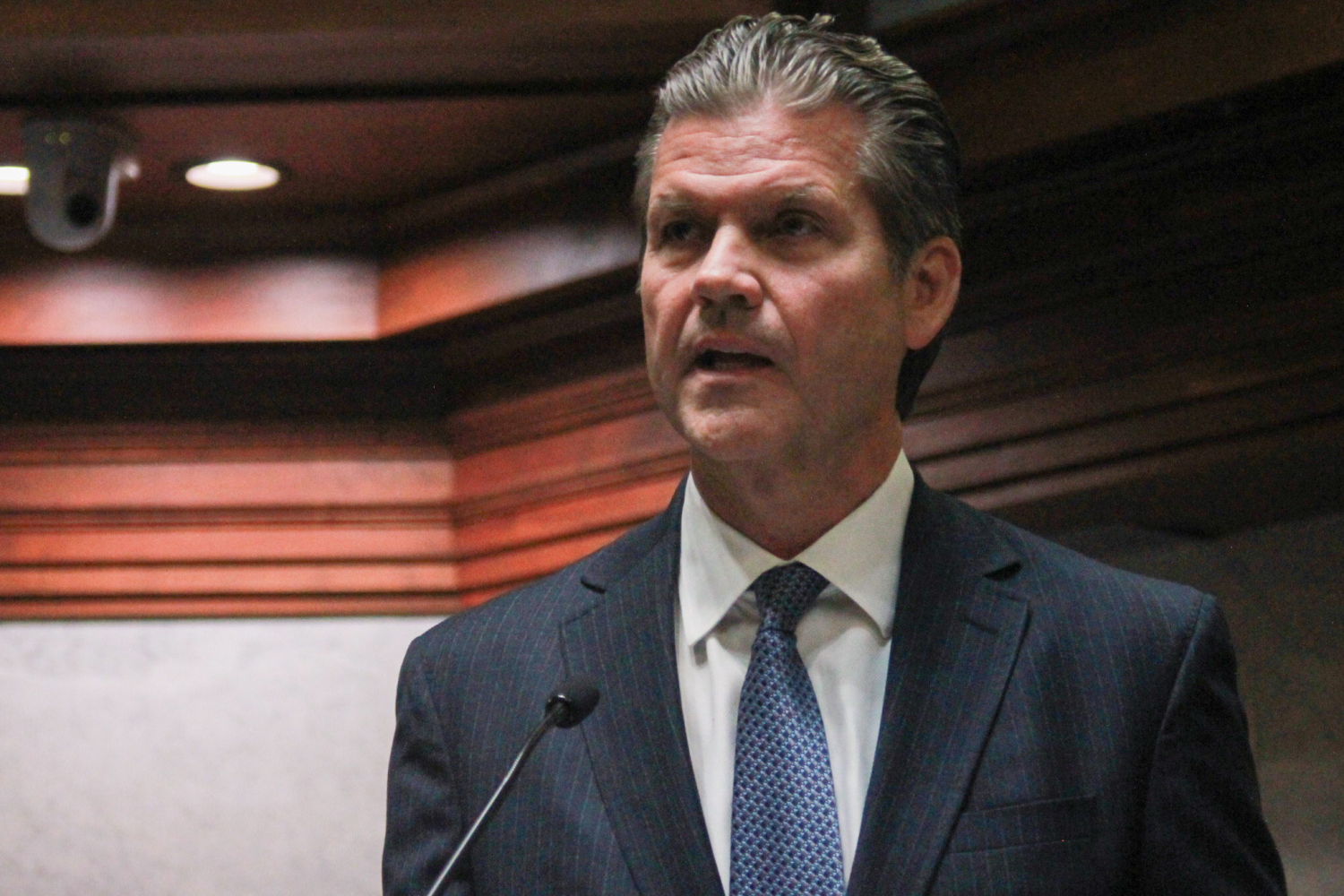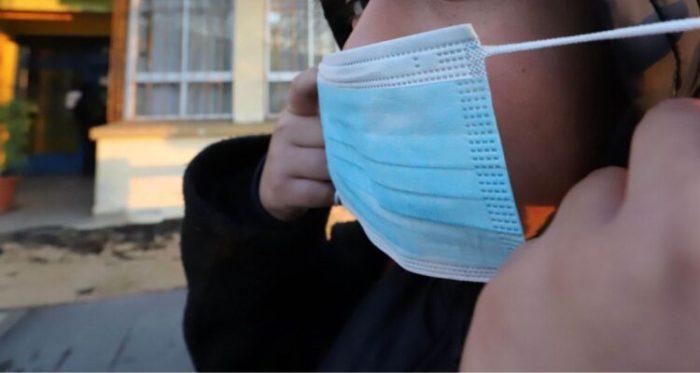Indiana Republicans Clash Over Worldwide School Voucher Expansion Amid Budget Debate
By Archyde News
The Divide Over School Choice
Indianapolis, IN – A significant rift has emerged among Indiana Republican leaders concerning the proposed expansion of the state’s Choice Scholarship Program, also known as the school voucher program. This disagreement surfaced during discussions on the state’s biennial budget in early 2025, highlighting fundamental differences in fiscal priorities and educational philosophies.
The heart of the debate revolves around a plan championed by Gov.Mike Braun to provide universal school vouchers, allowing any Indiana family to use state funds to send their children to private, parochial, or nonreligious schools. While the House, led by Speaker Todd huston, is largely in favor, Senate Republicans are expressing reservations, primarily due to concerns about the potential financial burden on the state.
The Senate’s proposed budget,unveiled on a Thursday in early 2025,notably omits the expansion of the Choice Scholarship Program. Sen. Ryan Mishler (R-Mishawaka) articulated the Senate’s concern, stating, “It’s not that we don’t want to do the vouchers.It’s just, how do we pay for them? I think that’s going to be the difference. How do we fund that?”
The Fiscal Realities of Universal Vouchers
According to state projections, expanding the program as envisioned could cost upwards of $190 million over the two-year budget cycle. This figure has prompted Senate Republicans to pump the brakes,emphasizing the need for fiscal responsibility.
Mishler elaborated on the Senate’s position: “Lawmakers would have to add in to cover those students, and we just didn’t have that.” This cautious approach contrasts sharply wiht the House’s enthusiasm for the proposal.
The current Choice Scholarship Program already allows families of four with an annual income of up to $220,000 to qualify for vouchers. The House proposal seeks to eliminate this income cap, making all Indiana families eligible for assistance, regardless of their financial status.
house Speaker Todd Huston remains a staunch advocate for universal vouchers. “It’s been somthing that we’ve always believed in,” Huston said. “We’ll have those conversations…it’s the right year for parents to have school choice.”
Voucher Program’s Growing Popularity & cost
Indiana’s voucher program has experienced significant growth in recent years. Enrollment is at an all-time high, with over 70,000 students currently utilizing vouchers, costing the state approximately $439 million in tuition grants for private schools.
A 2023 law significantly broadened eligibility requirements, removing stipulations such as prior public school enrollment and enabling higher-income families to access public funding for private education. This legislative change has fueled the program’s expansion and intensified the debate surrounding its long-term financial implications.
Gov.Braun has consistently championed the expansion of the Choice Scholarship Program. “Universal school vouchers will ensure every Hoosier family has the same freedom to choose their best-fit education,” he stated, underlining his commitment to providing parents with greater educational options.
Virtual School Funding Controversy
Adding another layer of complexity to the school choice debate, Senate Republicans are also seeking to reduce funding for virtual schools. Currently, these schools receive 85% of the per-student funding allocated to traditional brick-and-mortar schools. The Senate proposal aims to lower this to 70% of the state tuition grant.
The House, in contrast, has proposed fully funding virtual school students at 100%. Sen. Mishler explained the Senate’s rationale: “There just seems to be a lot of issues with some of the virtual school programs. We need to get a handle on that before we consider increasing any of that.” this suggests concerns about the quality and accountability of virtual education providers.
the National Landscape of School Vouchers
indiana’s debate over school vouchers unfolds against a backdrop of increasing national interest in school choice programs. Several states, including Arizona, Florida, and Iowa, have enacted or expanded voucher programs in recent years. the debate often hinges on arguments about parental rights, competition among schools, and the equitable allocation of resources. Though,the efficacy and fairness of school voucher programs remain subjects of rigorous debate.
Potential Counterarguments and Criticisms
Critics of voucher programs raise concerns about the potential impact on public schools. They argue that diverting funds to private institutions could weaken public education systems, notably in underserved communities.Additionally, some critics question the accountability and transparency of private schools receiving public funding. They argue that private schools may not be subject to the same level of oversight as public schools, potentially leading to disparities in educational quality and student outcomes.
Recent Developments and Future Implications
As of April 2025, the Indiana legislature continues to grapple with these competing priorities. The final outcome of the budget negotiations will have significant implications for the future of school choice in the state. The debate highlights the complex interplay of fiscal constraints, educational philosophies, and political considerations that shape education policy in the United States.
Indiana Choice Scholarship Program: Key Facts
| Aspect | Details |
|---|---|
| Current Enrollment (2025) | Over 70,000 students |
| Current Cost | Approximately $439 million annually |
| Current Income Limit (Family of 4) | $220,000 annual income |
| Potential Cost of Expansion | estimated $190 million over two years |
Archyde News Interviews Dr. Eleanor vance on Indiana’s School Voucher Debate
By Archyde News
Introduction
Archyde News: Welcome, Dr. Vance, to Archyde News. We’re grateful to have you here to discuss the ongoing debate surrounding school vouchers in Indiana, as the legislature navigates it’s budget. For our audience,Dr. Eleanor Vance is a leading education policy analyst and researcher at the Indiana Institute for Education Policy.
Dr. Vance: Thank you for having me. I’m happy to be here.
The Core of the Debate
Archyde News: The central issue appears to be the expansion of the Choice Scholarship Program, with Governor Braun advocating for universal vouchers. Can you break down the key differences in perspective we’re seeing between the House and the Senate?
Dr. Vance: Certainly. The House, spearheaded by Speaker Huston, seems strongly in favor of the expansion, seeing it as a matter of parental choice and educational opportunity. The Senate, however, led by figures like Senator Mishler, is primarily concerned with the financial implications. They’re cautious about the potential $190 million cost over the two-year budget cycle and are prioritizing fiscal responsibility.
Financial implications and Enrollment
Archyde News: the current program already serves many students and costs a significant amount. how do you think the potential cost increase of expanding this program would impact the state’s budget, and what other programs might feel the pinch?
Dr. Vance: That’s a crucial question. An additional $190 million is a considerable sum. It could necessitate cuts in other areas, such as infrastructure, or it could affect funding for public schools. It’s all about priorities, but the debate is about what services the state deems necessary. We should expect it to come from somewhere – a tax increase, budget cuts, or a combination of both.
Virtual Schools and Equity
Archyde News: There’s also a debate around virtual schools. The Senate wants to reduce their funding, while the House seems to prefer increased funding. What are the possible implications of these contrasting approaches to funding virtual education, and how might it affect educational equity?
Dr. Vance: The Senate’s position likely reflects some concerns about the quality and accountability of some virtual school programs. perhaps,they’re seeing lower achievement levels or other issues. The differing approach could impact educational equity. If virtual schools are defunded, it would decrease the opportunity for families in rural areas, or of low incom, to attend a virtual school, which can assist with travel or health issues.
National Landscape and Accountability
Archyde News: School voucher programs are gaining traction in numerous states. From your perspective, what are the biggest debates the broader national landscape of school vouchers raises?
Dr.Vance: the national conversation often revolves around parental choice versus the need to sustain public schools.Accountability is crucial. The private schools receiving public funding, should they be held to the same standards as public schools? What about standardized testing, teacher qualifications, and curriculum clarity? Those are questions to monitor closely.
Looking Ahead
Archyde News: As the Indiana legislature continues to grapple with these issues, what factors do you believe will be most critical in shaping the final form of school voucher policy?
Dr.Vance: Clearly, the budget is a major factor. The balance of power within the republican caucus will be significant, too. But ultimately, the concerns of parents, and the availability of good educational options for all families, will shape the final decision.Those things are not mutually exclusive, and it will be engaging to see how the legislature tries to accomodate those differing needs.
A Question For Our Readers
Archyde News: Dr. Vance, thank you for sharing your valuable insights with us. Before we end, what is one question you would pose to our readers regarding the future of school choice in Indiana?
Dr. Vance: I would ask: How can we ensure that, regardless of the funding model or school choice options, all indiana students have access to a high-quality education that prepares them for success, in a way that is clear and accountable?
Conclusion
Archyde News: Thank you, Dr. Vance. it’s an significant conversation, with real-world impacts on Indiana families. we’re looking forward to seeing the ultimate legislation. Thank you to our readers.







